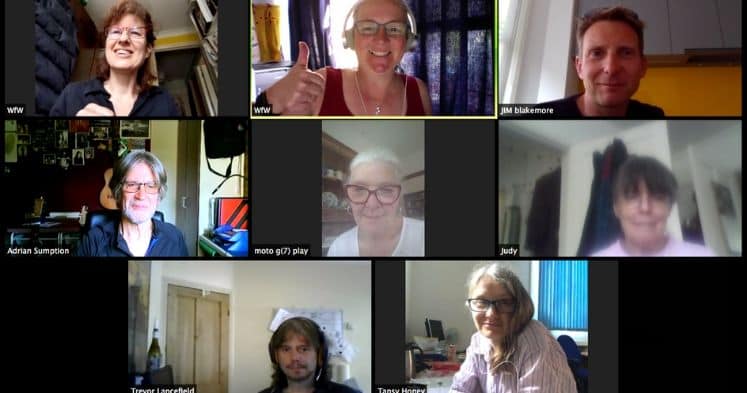Inclusive cycling providers across the UK are trying to find ways to make cycling available for its participants again. With this in mind, our Director has initiated a regular gathering of (mostly London-based) providers: Wheels for Wellbeing, Bikeworks, Ecolocal, Pedal Power and Companion Cycling, and also Cycling Projects, which co-ordinates the ‘Wheels for All’ network across England and Wales. As each organisation is facing the same challenges, we will be helping each other find the best ways so that we can restart our cycling sessions as soon as it is safe to do so.
The second meeting took place earlier this week, during which each organisation shared how close they are to restarting the inclusive cycling sessions – if at all – in preparation for the lockdown relaxing a little more from 1st June onwards.

CYCLING AT SESSIONS
Other than Bikeworks, all of the organisations are still in the same position, i.e. not delivering any face-to-face sessions.
Bikeworks (which operates at the Olympic Park, Victoria Park and Little Wormwood Scrubs) plans to “reopen” their All Ability clubs from the first week of June, albeit in a very different way. The organisation will no longer operate sessions on a drop-in basis for the time being, instead working with small groups that have been invited. They have developed a protocol for COVID-secure sessions, which will be shared within the group.
However, Bikeworks still needs to solve the issue of toilets not being available, neither in parks nor at the Olympic Velodrome. Everyone at the meeting agreed that having no public toilets available is an issue. Are portable toilets in parks a solution? How would they be cleaned, and who by? We are all constrained in different ways by our venue partners, and so it is likely that each individual organisation will have to negotiate.
We talked about the importance of risk assessments – ones completed by each inclusive cycling providers, by organisations attending our sessions, and for our funders to demonstrate the infection control measures put in place. An additional consideration is the training of support staff, paid carers and supporters (e.g. family members), which could be the key to dramatically lowering the risk of infection between our participants, staff and volunteers. Another way to lower this risk is by moving to cashless payment systems, such as by using apps, invoices and contactless card payments – this will reduce physical contact between people at the sessions.
CYCLING OUTSIDE OF SESSIONS
Some Disabled people have found that they can cycle more during the lockdown – you can read about Ellis’ experiences here. Having more time and quieter roads have enabled this, in addition to services such as Wheels for Wellbeing’s cycle hire scheme (click here to read Natalie’s case study). But for most Disabled people, exercise has not been available to them at all.
We discussed ways in which we can support accessible and safe walking/wheeling/cycling environments as the lockdown is eased, so that Disabled people are not forced to stay shielding for excessive amounts of time. Wheels for Wellbeing will soon be publishing a position statement on this subject, asking the Government and local authorities to put Disabled people at the heart of the temporary changes made to walking, wheeling and cycling infrastructure. Our Director will be asking other organisations to support this statement too.
